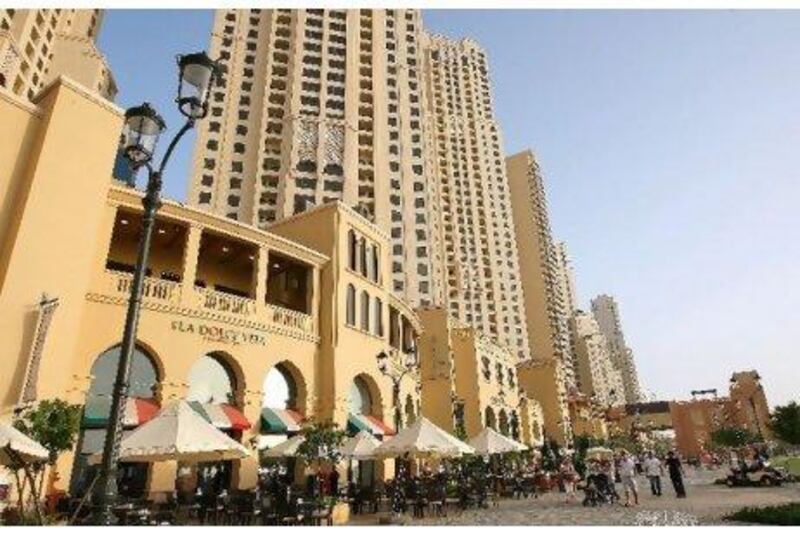DUBAI // More trouble is brewing over strata law as property developers attempt to bar homeowners from owners' association elections until they pay any outstanding maintenance fees.
For years, owners have accused developers of charging exorbitant rates with little transparency. In protest, some owners have refused to pay maintenance fees until the matter was resolved.
Strata law was seen as a way to settle the maintenance fee dispute. Under the new law, Owners' Associations (OAs) were to be formed and take control of property maintenance costs from developers.
Now, developers have begun calling "general assembly" meetings where owners elect five to seven representatives for each OA board. But, as elections get under way, some owners say they are being barred from voting until maintenance fees are paid in full.
Hamid Hamri is an owner at Jumeirah Beach Residence. The apartment building held its election on Tuesday. He and other JBR owners said their developer, Dubai Properties, is forbidding owners who are in arrears from voting or running.
The dispute stems in part from different interpretations of the law. According to the government-issued Association Constitution: "If service charges are owing and overdue with respect to a unit, no vote may be cast in respect of that unit at a general assembly."
But owners say the law outlined in the constitution does not yet apply because the OAs being formed are not yet considered legal entities. They will be made official only after developers complete and file complex paperwork, which may take months for the Real Estate Regulatory Authority (Rera) to process and for owners to approve.
"We should exclude people after the board is legal, not before," argued Mr Hamri.
Rera appeared to support that idea when the issue was raised at a seminar for owners last month.
At the seminar, Jeevan D'Mello, an owner, said anyone should be allowed to participate in interim elections, but only fully paid owners should participate in formal OA elections. Rera officials in attendance then voiced their support for his position.
Dubai Properties declined to confirm whether it was barring unpaid owners, but said it was "committed to full compliance with Rera's Joint Owned Property Law (Strata Law)".
Some owners, however, back their developers' decision to exclude non-paying owners from voting, because they are not chipping in. "They are out of this," said one owner whose tower recently held its board elections and who requested anonymity.
In his and other towers, so many owners owe money that building maintenance has suffered, eroding the value of all owners' investments.
Adrian Quinn, the head of Essential Community Management, which assists OAs, said: It's a catch 22. It's a hard point, because there are arguments about what people should pay."
However valid a dispute over service charges might be, owners must settle their accounts before they can have a formal role in challenging the charges, he said. "They can disagree, but if they have not paid, they have no right to have a voice."
The developer Emaar said owners with unpaid fees could vote but could not stand in OA board elections. Nakheel did not respond to requests for comment.






